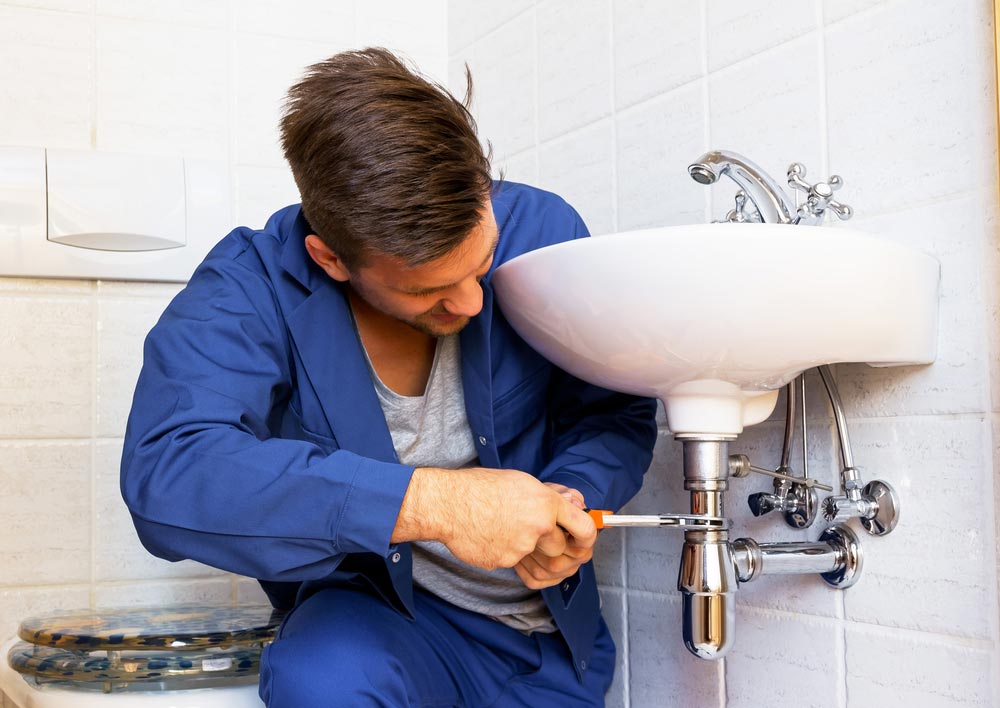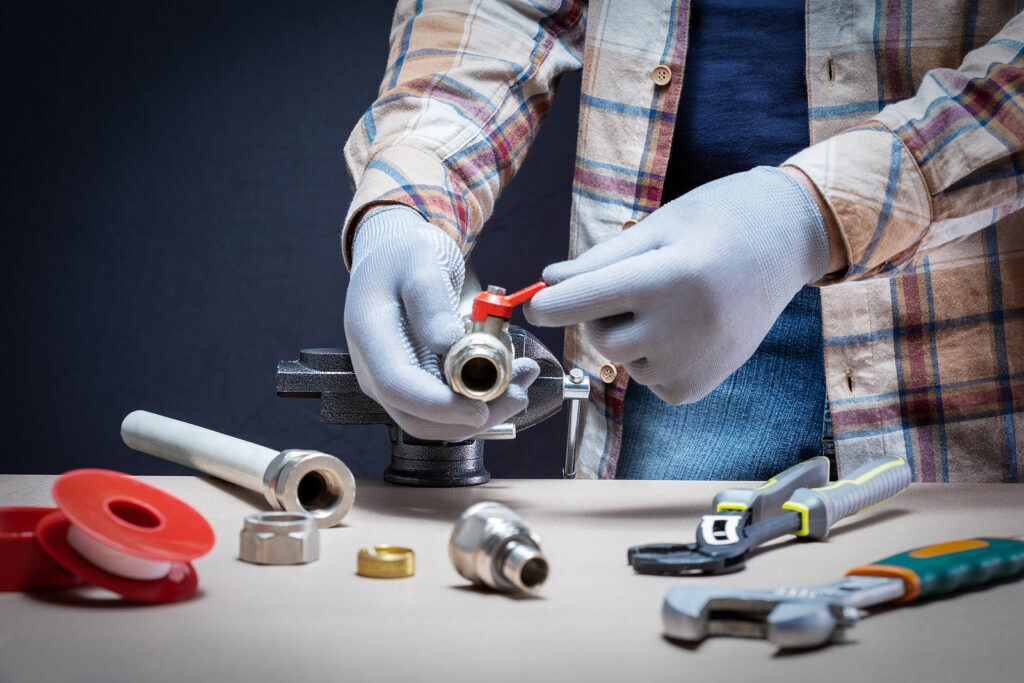Emergency Plumbing Tips: How to Manage Issues Until Assistance Arrives
Emergency Plumbing Tips: How to Manage Issues Until Assistance Arrives
Blog Article
What are your thoughts about Expert Tips for Managing a Plumbing Emergency Until Help Arrives?

Plumbing emergency situations can strike at any time, triggering anxiety and potential damage to your home. Whether it's a ruptured pipeline, a clogged up drainpipe, or a dripping faucet, understanding exactly how to take care of the scenario till a specialist plumbing shows up can save you from more complications. This short article provides essential emergency situation pipes suggestions to assist you minimize damage and gain back control throughout a pipes crisis.
Turn Off the Supply Of Water
The primary step in any type of pipes emergency situation is to turn off the water. For local concerns, such as a dripping tap or toilet, turn off the valve near the fixture. In the case of a major leak or burst pipe, find your home's primary water shut-off valve and turn it off right away. Understanding the place of these valves in advance can save important time during an emergency.
Address Tiny Leakages with Short-lived Repairs
Small leaks can promptly come to be considerable issues if left unattended. Utilize these short-term fixes until professional help gets here:
While these repairs aren't permanent, they can aid decrease water loss and damages.
Unclog Drains Securely
A stopped up drain can be a frustrating and unpleasant problem. Here's just how to tackle it:
If these techniques do not function, prevent using too much pressure, as it may get worse the obstruction.
Manage Overflowing Toilets
An overruning toilet can create instant mayhem. Below's what you must do:
Shut Off Your Hot Water Heater
In specific emergencies, such as a ruptured pipe, it's wise to turn off your water heater. This stops getting too hot or damages to the unit when water quits flowing. Shut off the power supply to the water heater (electrical or gas) and allow it cool down to avoid prospective threats.
Temporarily Quit a Burst Pipe
A ruptured pipe can cause substantial water damage in mins. To mitigate the problem:
Call a professional plumbing technician right away to resolve the trouble permanently.
Deal With Frozen Piping Very Carefully
In cooler environments, frozen pipes are a typical emergency situation. If you believe a frozen pipe:
Protect against Further Damage
Taking fast activity to decrease damage can save you time and money over time. Right here's just how:
. Have an Emergency Situation Plumbing Set
Prepare a standard plumbing emergency package to manage small issues efficiently. Your set should consist of:
Having these devices handy can make a considerable difference in your ability to manage emergency situations.
Know When to Call a Professional.
While quick fixes can assist briefly, particular pipes concerns call for instant professional focus. Call a plumbing professional if:.
Promptly contacting a professional makes certain the concern is fixed appropriately and stops further complications.
Verdict.
Plumbing emergencies can be frustrating, however with the best expertise and devices, you can handle the circumstance effectively until aid gets here. By shutting off the water, dealing with little leaks, and utilizing short-lived fixes, you can decrease damages and keep your home safe. Remember, these tips are momentary remedies; constantly get in touch with an accredited plumbing technician to manage the root cause of the problem. Prep work and quick reasoning are your best allies in any kind of plumbing emergency.
8 Helpful Tips for Managing Plumbing Emergencies at Home
If your plumbing system hasn’t failed once, wait for it because almost everyone has a story to tell. Sometimes, it could be simple emergencies such as a leaking pipe, a blocked cistern, or even a big burst pipe. In situations like this, you need to have some handy tips to save you some money and from possible damages.
Take care of minor issues early.
Sometimes, you could have avoided an emergency by taking proactive measures while it was still early. Some major plumbing emergencies can be a result of an ignored minor issue. We recommend that you have items like plumbing tapes and other related items. A plumbing tape can allow you to manage minor leaks before the plumber arrives.
Cut off the water supply.
This tip is essential in almost any type of leakage problem. For problems like minor leakages in the toilet or kitchen, turn off the supply that takes water to the affected pipes. If the leakage is a major pipe, you must shut off the supply valve to the entire building. This will help you avoid flooding your home and neighbors if you share a flat.
Know your plumbing system
Folks typically move into a new apartment without understanding the water supply around the building. This can prove disastrous if a water emergency arises and the plumber is far away. The previous tip will prove useless if you don’t practice this one. More importantly, know where your water shut-off valve is located – you’ll need that knowledge to prevent potential home floods.
Have some common handy tools
There are lots of plumbing emergencies that you can handle without hiring a plumber. That’s why you must keep some tools available always. Some tools that you can use to fix simple plumbing emergencies easily include plumbing tapes, screwdrivers, thread seal tapes, plungers, pliers, tape measures, and rubber gloves.
Insulate your pipes from cold
You’ll save yourself from many plumbing expenses if you protect your water pipes from the cold. This is because of the harmful effects that cold weather can have on your pipes. During winter, your pipes can burst from being overly expected to freezing temperatures. So, make sure insulators are there to keep the pipes working correctly.
Avoid practices that will clog your toilet.
Many people indulge in practices that can damage the plumbing system of the entire building. One of these is when they use their toilet to dispose-off garbage. They flush all kinds of things, such as paper towels, bandages, hairs, female sanitary products, etc., down the toilet. This will block your toilet in the long run, incurring unnecessary expenditures. Dump such waste in the trash instead.
Check your dials regularly.
Sometimes, there could be leakages in your home without noticing them in time. So, constantly monitor your water meter dial. If the dial is reading when there is nobody using water, this is an indicator that there is leaking. Check for leaks immediately. Call a plumber as soon as possible if you can’t find any.
https://www.constructionplacements.com/8-helpful-tips-for-managing-plumbing-emergencies-at-home/

I was made aware of that article on What to Do While Waiting for an Emergency Plumber through an associate on a different website. So long as you enjoyed reading our post if you please don't forget to share it. Thank-you for taking the time to read it.
Visit Our Site Report this page